Amnesty Calls For Prompt Probe Into Evin Prison’s Deadly Fire
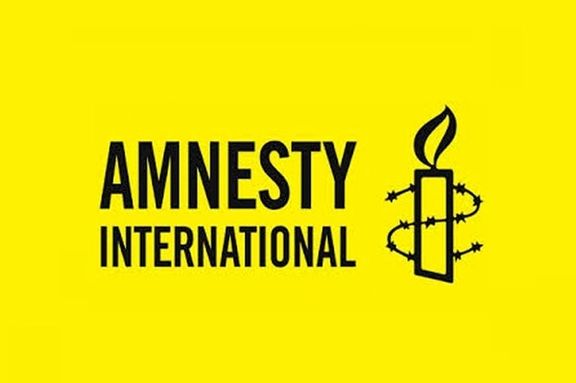
Rights group Amnesty International has called on the Islamic Republic to immediately allow independent international monitors unhindered access to Iranian prisons.

Rights group Amnesty International has called on the Islamic Republic to immediately allow independent international monitors unhindered access to Iranian prisons.
In a statement on Tuesday, Amnesty International urged a probe into “the harrowing use of unlawful force by security forces at Tehran’s Evin prison on 15 October 2022,” when a mysterious fire broke out at the prison, killing at least eight inmates and injuring over 60.
Calling for protection of prisoners from further unlawful killings, torture and other ill-treatment, the group said, “This latest deadly incident once again brings into sharp focus the urgent need to address the litany of crimes being committed by the Iranian authorities through an independent investigative, reporting and accountability mechanism.”
The group condemned the government who blamed prisoners for the fire that engulfed areas of Evin prison, saying “evidence gathered by Amnesty International raises serious concerns that the authorities sought to justify their bloody crackdown on prisoners under the guise of battling the fire and preventing prisoner escapes.”
According to testimonies obtained by Amnesty International from prisoners, victims’ relatives, journalists and human rights defenders with contacts inside Evin, prison officials fired teargas and metal pellets at hundreds of prisoners, and subjected many to brutal beatings with batons, particularly on their heads and faces.
The group also expressed grave concern about eyewitness accounts indicating that security forces pointed guns to the heads of several women prisoners and may have also fired live ammunition towards some male prisoners.
Following the massive blaze, some journalists and people on social media accused the Islamic Republic of setting the prison on fire intentionally.

As protests in Iran are well into their fifth week, some Iranian lawmakers are diagonally divided over the government's approach to handling the unrest.
While the protests have gone far beyond the issue of hijab and turned into full-fledged antigovernment demonstrations and clashes with security forces, some lawmakers defiantly insist on hard-line approaches to hijab and call for heavy-handed crackdown on protests while others seem to be seeking ways to pacify the situation by trying to convince others to accept peaceful demonstrations.
Ultraconservative cleric Mojtaba Zolnouri a member of the Iranian parliament from Qom told Asr Iran website that "women who do not cover their hair should be sentenced to 74 lashes." He claimed that "A notice served by the morality police will not be enough for women who take off their hijab."
Zolnouri, who is a member of parliament's National Security Committee, criticized other lawmakers for questioning the morality police and said that Iranians should not question the rationale behind its mission. He charged that lawmakers who criticize the morality police are disturbing the public's peace of mind.
According to Asr Iran, the morality police has filed complaints at the Judiciary to take critics at the parliament to court over their condemnation of its performance.
In another development, hardliner lawmaker Mousa Ghazanfarabadi told ISNA that that women who violate compulsory hijab rules should be identified using face recognition technology and subsequently deprived of social rights. Ghazanfarabadi further tried to justify use of force in "dealing with women who violate compulsory hijab rules outrageously."

Meanwhile, as most of the complaints about violent behavior of security personnel have been about plainclothes agents, lawmaker Hossein Nushabadi said in an interview with Rouydad24 website that "Plainclothes officers have nothing to do with women or protesters in general unless they come under attack." However, he did not say why these officers do not wear uniforms so that everyone knows who they are.
Although Noushabadi claimed that plainclothes officers do not attack people, he did not rule out the presence of "rouge elements" among them and acknowledged that some of the protesters have been killed or wounded by these rouge elements. However, he refused to say how can people differentiate between plainclothes officers and rouge elements. Armed plainclothes officers are seen in many videos of the protests on social media.
In his defense of the protesters, however, Noushabadi called on the government to determine certain places where people can go for peaceful protests without fearing repression by security forces or plainclothes officers. Calls like this have been made time and again during the past 30 years, but no practical measure has been taken by the government.
In another development, lawmaker Mohammad Hassan Asafari told ILNA in an interview on Monday that "No permission from the government is needed for holding protest gatherings. He said that the Majles has tabled a motion to make the officials accountable for the security forces' mistreatment of the protests.
The right to protest is recognized in Article 27 of the Iranian Constitution but various Iranian governments in the past four decades have refused to uphold this right and respect the Constitutional Law. The only conditions set in the law for taking part in protest movements are that demonstrators should not be armed, and the protest should not be against the essence of Islam.
According to Asafari, it is difficult to convince the government about the people's right to protest unless powerful political parties are formed in Iran.
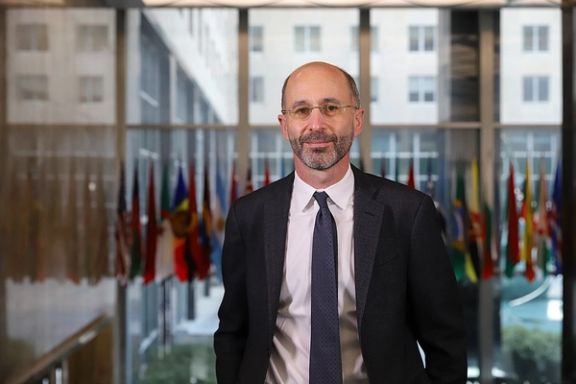
US officials have reiterated their support for the ongoing protests in Iran with Special Envoy Robert Malley saying that the talks to revive the nuclear deal are no longer on the agenda.
“This is grass roots, this is bottom up,” Antony Blinken, the Secretary of State said in remarks tweeted by the State Department Tuesday, referring to protests that began mid-September. “This is a reflection of huge frustration and anger towards the direction of their country and their leadership. This is not made in the USA, it’s not made anywhere else…”
Malley told CNN on Monday that "Right now the talks on revival of JCPOA are not on the US agenda; the focus is on what's happening in Iran as the talks are stalled," adding that “Iran has taken a position in those talks for the past two months, which is simply inconsistent with a return to the deal.”
However, he insisted that “diplomacy is the way” to prevent Iran from acquiring a nuclear weapon, noting that “We will see whether this is a government that is interested in reaching a deal.”
Malley said Iran’s leaders should “stop pointing the finger at external actors who have nothing to do with what’s happening in their country and listen to their people…” President Ebrahim Raisi Sunday said the US was “inciting chaos,” while Iranian politicians have generally denounced foreign-based media and social-media operations.
Malley went on to say that in a struggle of “peaceful protestors” against “a government using brutal repression” there was “no doubt” where the US stood. Malley denied that the US sought “regime change [in Iran] instigated in the US.” He said Washington supported human rights in Iran “just as we support human rights of citizens across the globe.”
Malley also defended the approach of President Joe Biden in seeking to revive the 2015 Iran nuclear agreement, the JCPOA (Joint Comprehensive Plan of Action), arguing the talks were “stalled” because Tehran was “making demands that have nothing to do with the JCPOA.”
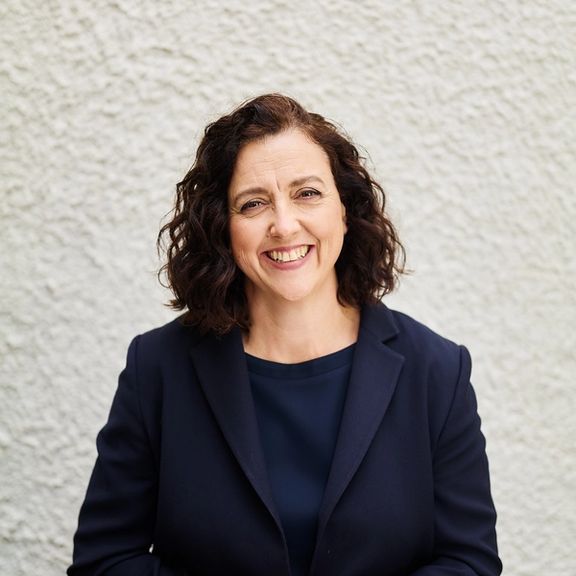
An Australian MP says Canberra must designate Iran's Revolutionary Guard as a terrorist organization and cooperate with UN states to remove Iran from the women commission.
Monique Ryan told Iran International’s correspondent that the government of Prime Minister Anthony Albanese should also work with other UN states to remove Iran from United Nations Commission on the Status of Women (CSW) amid the Islamic Republic's crackdown on the current uprising spearheaded by Iranian women and ignited by the death in custody of 22-year-old Mahsa Amini.
Expressing grave concern over “what has been done to young people in Iran by the government,” she praised the courage of people “for standing up for their rights.” She added, “Being physically punished for that is deeply shocking and very concerning for all Australians.”
Referring to a letter to the Albanese Government signed by her as well as several other lawmakers, she said they called on Canberra to act “more forcefully to express the repugnance felt by the Australian people towards the recent treatment of peaceful demonstrators."
She said they specifically requested Magnitsky-style targeted sanctions including financial asset freezes and travel bans against members of the Revolutionary Guards (IRGC), key security officials and the so-called morality police. “We also asked the government to declare the IRGC as a terrorist force as has been done in the US and Canada,” she said, adding that they also called on the government to join other states to remove Iran from the UN Commission on the Status of Women.
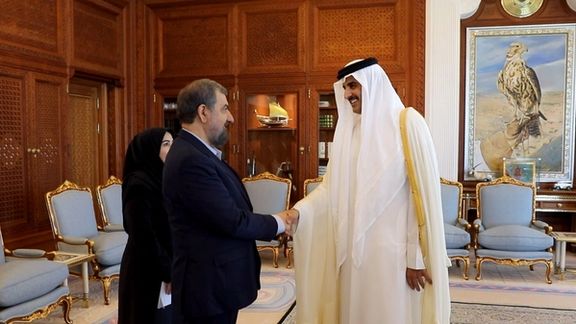
Argentina has called on Qatar to arrest visiting Iranian vice president Mohsen Rezaei over his alleged responsibility for the deadly 1994 bombing of a Buenos Aires Jewish center.
According to the official Telam news agency on Monday, special prosecutors have submitted a petition to Argentina's foreign ministry calling for all appropriate diplomatic levers to be pulled.
The ministry "requested the collaboration of Interpol for the arrest," while Foreign Minister Santiago Cafiero "instructed the Argentine ambassador in Doha... to communicate urgently with the Qatari Foreign Ministry and report on the situation," a diplomatic source said.
Ebrahim Raisi’s vice president for economic affairs, Revolutionary Guard’s commander Rezaei (Rezai) is wanted by Argentinian special prosecutors for alleged participation in the planning of the July 18, 1994 bombing of the Argentine Israelite Mutual Association, or AMIA, which killed 85 people and wounded 300.
In 2007, INTERPOL General Assembly upheld the unanimous decision made by the organization’s Executive Committee to publish six out of nine Red Notices requested in connection with the AMIA.
The notices were requested by the Argentinean National Central Bureau (NCB) for Imad Fayez Moughnieh, the number two in Iran-backed Hezbollah, Iran’s Former Intelligence Minister Ali Fallahian, Cleric Mohsen Rabbani – known as the chief architect of Iran's Latin American missionary network -- Iranian diplomat Ahmad Reza Asghari – aka Hamid-Reza Es’hagi and Moshen Ranjbaran -- and Revolutionary Guards commander and incumbent Interior Minister Ahmad Vahidi as well as Mohsen Rezaei.
Earlier in the year, Argentina condemned the presence of Rezaei in the inauguration of the new Nicaraguan president Daniel Ortega, describing it as an insult to the victims of the bombing of the Jewish center.
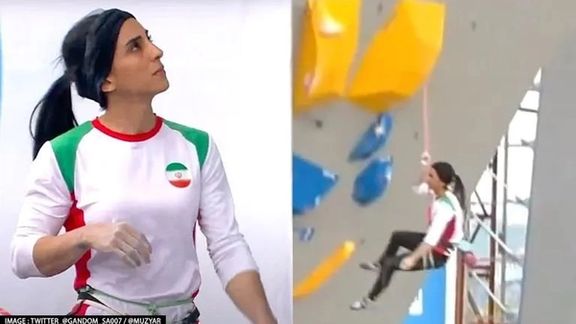
There are conflicting reports over the fate of Iranian athlete Elnaz Rekabi who competed at the Asian Climbing Competitions finals in Seoul without wearing hijab.
Disobeying the Islamic Republic's restrictions for female athletes, she made history by representing Iran unveiled in support of anti-hijab and antigovernment protests that have been raging across the country since mid-September, when 22-year-old Mahsa Amini was killed in custody of hijab police.
Worried that she would be arrested upon arrival, people had organized a huge gathering to welcome her early on Wednesday morning when she was scheduled to arrive back in the country. But, reports came late on Monday that her travel documents were confiscated by officials, who are part of all Iranian sport delegations abroad to monitor and control the behavior of athletes. For some hours, unconfirmed reports said she was prevented from leaving the hotel where the Iranian delegation were staying in Seoul.
The latest on her whereabouts was a post on her Instagram page, in which she said she is on her way back home as scheduled, explaining that she had to appear for the final without head covering due to miscalculations of the final schedule. People on social media do not seem to believe such claims as they are accustomed to fabricated justifications and forced confessions extracted by the Islamic republic’s authorities.
Emphasizing that they are monitoring the case of the Iranian rock climber, the International Federation of Sport Climbing (IFSC) said, "There is a lot of information in the public sphere regarding Elnaz Rekabi and as an organization we have been trying to establish the facts. We have also been in contact with Ms. Rekabi and the Iranian Climbing Federation.”
In 2019, boxer Sadaf Khadem attended a boxing match with the Iranian flag and without a headscarf. She had to cancel her return flight to Tehran after a warrant was issued for her arrest.